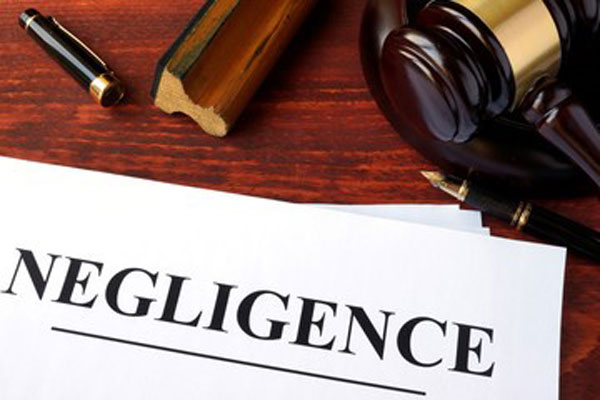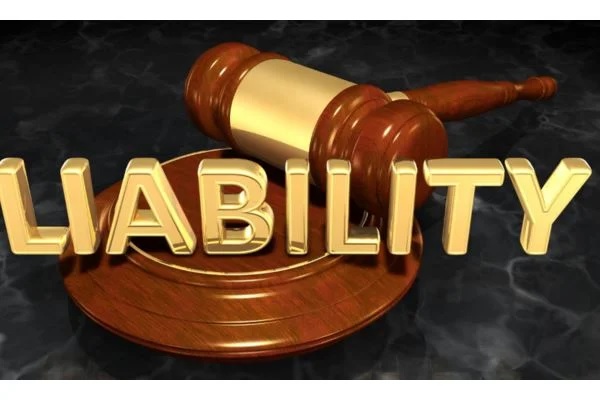The Basics of Claim Filing
Filing a claim is the initial step for individuals seeking legal redress or compensation for grievances or damages incurred. This process involves several key stages, starting with the identification of the grounds for the claim. Claimants must gather pertinent evidence to support their case, which may include documentation of the incident, testimonies, or expert opinions.
The following points outline the basic steps in filing a claim:
- Determining the appropriate venue or jurisdiction for the claim
- Preparing the necessary legal documents to file
- Submitting the claim within the prescribed time limits
It is crucial for claimants to be aware of the statute of limitations, which dictates the timeframe within which a claim must be filed. Failure to adhere to these deadlines can result in the forfeiture of the right to seek legal remedy. Additionally, claimants should understand the specific eligibility requirements that may apply to their case. For instance, asbestos exposure victims can file trust fund claims for compensation. Lawsuits require evidence of exposure, injury, and damages. Statute of limitations and eligibility requirements vary by state, making it essential to have a clear understanding of these legal nuances.
Navigating the Legal System
Navigating the legal system can be a daunting task for individuals filing a claim. The complexity of legal procedures, coupled with the intricacies of statutory regulations, often necessitates a comprehensive understanding of the law.
Key steps in navigating the legal system include:
- Identifying the appropriate court or tribunal for filing the claim.
- Understanding the specific legal forms and documentation required.
- Complying with procedural rules that govern the filing process.
It is crucial for claimants to recognize the importance of adhering to these steps to avoid unnecessary delays or the potential dismissal of their claim. Organizations such as the this cancer group can be instrumental in providing support and legal help, particularly for specialized cases such as those related to asbestos exposure. They offer compensation assistance and connect individuals with top attorneys, ensuring that claimants have access to the necessary legal resources and networks.
Time Limits and Deadlines
Understanding the time constraints involved in filing a claim is crucial. Different types of claims have varying statutes of limitations, which are the deadlines by which a claim must be filed. Failing to adhere to these deadlines can result in the loss of the right to seek legal redress.
- Statutes of Limitations: This is the specific time frame within which you must initiate legal proceedings. It varies by jurisdiction and the nature of the claim.
- Notice Requirements: Some claims, especially against government entities, require a notice of the claim to be filed within a much shorter period than the statute of limitations.
- Tolling of Limitations: In certain circumstances, the statute of limitations may be paused or ‘tolled’, such as when the injured party is a minor or if the defendant is absent from the jurisdiction.
It is imperative for claimants to be aware of these time-sensitive requirements to ensure their claims are not barred due to procedural oversights. Legal representation can be particularly beneficial in managing these deadlines and providing advice on the potential for tolling or extending these limits.
The Advantages of Having Legal Representation
Expert Guidance and Advice
When pursuing a legal claim, the intricacies of the law can be daunting for individuals without a legal background. Having a lawyer by one’s side provides expert guidance and advice that is crucial for navigating the complexities of the legal system. Lawyers are trained to understand the nuances of the law and can offer insights that are not readily apparent to the layperson.
Key benefits of expert legal guidance include:
- Informed Decision-Making: Lawyers can explain the implications of different legal strategies, helping clients make informed decisions about their case.
- Avoiding Pitfalls: Legal experts are adept at identifying potential issues before they become problematic, steering clients clear of common legal missteps.
- Clarifying Legal Jargon: Attorneys can translate complex legal terminology into understandable language, ensuring clients fully grasp the details of their case.
Ultimately, the advice provided by a legal professional can be instrumental in building a strong case, while also offering peace of mind that all aspects of the claim are being handled with expertise.
Negotiation and Settlement Skills
Legal representatives bring to the table a set of specialized negotiation and settlement skills that can be pivotal in resolving a claim favorably. They are trained to understand the nuances of legal arguments and to present a case in the most persuasive manner possible. Their expertise often leads to settlements that are more favorable to their clients than what individuals might achieve on their own.
Key negotiation skills include:
- The ability to evaluate the strengths and weaknesses of a case objectively
- Strategic thinking to foresee the opponent’s moves and prepare counterarguments
- Effective communication to articulate a client’s position clearly and convincingly
- Emotional intelligence to manage the stress of negotiation and to read the emotional cues of the opposing party
Moreover, lawyers have experience with the settlement process and can navigate the often complex negotiation landscape. They understand when to push for a better offer and when to advise their clients to accept a settlement. This balance is crucial in ensuring that clients do not miss out on fair compensation due to unrealistic expectations or lack of legal insight.
Access to Legal Resources and Networks
Having a lawyer by one’s side often means gaining access to a wealth of legal resources and professional networks that can be pivotal in the success of a claim. Attorneys typically have subscriptions to up-to-date legal research tools and databases that are not readily available to the public. These resources enable them to find relevant case law, statutes, and legal articles that can strengthen a client’s position.
Moreover, experienced lawyers are usually well-connected within the legal community. They can leverage these relationships to a client’s advantage in various ways:
- Collaborating with other legal professionals to gain insights or information.
- Finding expert witnesses to testify on technical matters.
- Consulting with specialists for a more robust understanding of complex issues.
This network extends beyond the legal sphere, often including contacts in government agencies, non-profits, and industry-specific experts. The ability to tap into this network can expedite processes, provide strategic advantages in negotiations, and contribute to a more favorable outcome for the client.
Assessing the Need for a Lawyer
Complexity of the Case
The intricacy of a legal case can significantly influence the decision to hire an attorney. Simple disputes may be navigable without professional help, but complex litigation often requires a deep understanding of the law that only a trained lawyer can provide. Factors that contribute to a case’s complexity include:
- The number of parties involved
- The legal issues at stake
- The volume and nature of evidence
- Jurisdictional questions
When these elements are present, the risk of procedural missteps increases, potentially jeopardizing the outcome. A lawyer’s expertise becomes invaluable in dissecting the nuances of the case and ensuring that all legal protocols are meticulously followed. Individuals facing multifaceted legal matters are advised to consider the benefits of legal representation to navigate the complexities effectively.
Potential Legal Risks
When assessing the need for a lawyer, one must consider the potential legal risks involved in filing a claim. These risks can vary greatly depending on the nature of the case and the legal environment in which it is pursued.
- Unforeseen Complications: Legal matters often involve complexities that can arise unexpectedly, leading to potential pitfalls for those unfamiliar with the law.
- Adverse Outcomes: Without proper representation, claimants may face unfavorable judgments or settlements, which could have been mitigated with the expertise of a lawyer.
- Statutory Penalties: Certain legal actions carry the risk of statutory penalties, including fines or sanctions, that a knowledgeable attorney could help avoid.
Evaluating these risks is crucial as they can have long-term consequences on an individual’s financial stability, reputation, and legal rights. A lawyer’s ability to foresee and navigate these risks is a valuable asset in the claim filing process.
Cost-Benefit Analysis
When considering legal representation for filing a claim, individuals must weigh the potential benefits against the costs involved. This cost-benefit analysis is crucial in determining whether the expense of hiring a lawyer is justified by the expected outcomes.
- Financial Implications: The most apparent factor is the financial cost of legal fees versus the monetary gain from a successful claim. If the potential recovery is significantly higher than the legal expenses, hiring an attorney may be a sound investment.
- Time and Effort: Individuals should also consider the time and effort required to self-represent. The legal process can be time-consuming and complex, and a lawyer can save considerable time and reduce stress.
- Risk Assessment: Evaluating the risk of losing the case without professional legal assistance is another critical aspect. An experienced lawyer can often provide a realistic assessment of the case’s chances of success and can strategize accordingly.
Ultimately, the decision to engage legal representation should be made after careful consideration of all these factors, alongside personal circumstances and the specific details of the case at hand.
The Lawyer-Client Relationship
Communication and Trust
The foundation of a successful lawyer-client relationship hinges on effective communication and mutual trust. Clients should feel comfortable sharing sensitive information, knowing that their lawyer will maintain confidentiality and act in their best interest. Regular updates and clear explanations of legal proceedings help to build this trust and ensure that clients are informed decision-makers in their cases.
- Open Dialogue: Encouraging honest and open communication prevents misunderstandings and fosters a collaborative environment.
- Responsiveness: Lawyers should promptly address client concerns and inquiries to maintain confidence in the representation.
- Clarity: Legal jargon can be confusing; lawyers need to explain complex legal concepts in understandable terms.
Trust is earned over time and can be reinforced by the lawyer’s demonstrated commitment to the client’s case. This includes being prepared, punctual for meetings or court appearances, and showing a genuine interest in achieving the client’s objectives. When trust is established, clients are more likely to follow legal advice and feel satisfied with the representation, regardless of the outcome.
Understanding Lawyer Fees and Agreements
Navigating the financial aspects of legal representation is crucial for clients. Lawyer fees and agreements vary widely and can be structured in several ways. Here are some common fee arrangements:
- Hourly rates: Clients pay for each hour the lawyer works on their case.
- Contingency fees: Clients pay a percentage of the settlement or award, only if the case is won.
- Flat fees: A fixed amount is paid for the lawyer’s services, regardless of the time spent.
- Retainer fees: An upfront cost that is held in an account and used to cover the lawyer’s work as it occurs.
Clients should ensure they fully understand the fee structure before signing any agreements. It’s important to ask about additional costs, such as court fees, and how they will be handled. Transparency in billing practices is essential to build trust and avoid disputes. Moreover, clients should be aware that some websites provide information on legal aspects and support resources, which can be beneficial when assessing the value of legal services offered.
The Role of the Lawyer in Client Decision-Making
In the realm of legal disputes, the lawyer acts not only as an advocate but also as a counselor. Their role in client decision-making is pivotal, providing a balance between legal expertise and the client’s personal interests. Lawyers guide clients through complex legal terrain, ensuring that decisions are informed by a thorough understanding of the implications and potential outcomes.
Key aspects of a lawyer’s involvement in decision-making include:
- Assessment of Options: Lawyers help clients understand the various legal routes available, outlining the pros and cons of each.
- Strategic Planning: They contribute to formulating a strategy that aligns with the client’s goals and legal realities.
- Risk Evaluation: Attorneys are instrumental in identifying potential risks and advising on how to mitigate them.
- Ethical Considerations: Lawyers ensure that decisions comply with legal and ethical standards, safeguarding the client’s integrity.
Ultimately, while the lawyer provides critical input, the client retains autonomy over their choices. The lawyer’s task is to empower the client with knowledge and confidence to make decisions that are both legally sound and personally satisfactory.
Alternatives to Traditional Legal Representation
Pro Se Representation: Pros and Cons
Choosing to represent oneself in court, known as ‘pro se representation,’ can be a daunting yet empowering decision. On one hand, individuals who opt for pro se representation can benefit from significant cost savings, as they avoid attorney fees. They also experience a direct hand in the management of their case, which can lead to a greater sense of personal involvement and control over the legal proceedings.
However, the disadvantages of pro se representation are considerable. The legal system is complex, and without proper legal training, individuals may find themselves at a disadvantage, particularly when facing opposing counsel. The risks include:
- Misunderstanding legal procedures and rules, leading to procedural errors.
- Inadequate legal knowledge to build a strong case or defense.
- Potential for increased stress and time commitment as one navigates the legal system without professional guidance.
Ultimately, while pro se representation offers autonomy, it requires a substantial investment of time to learn the legal system and may result in a less favorable outcome due to the lack of professional legal expertise.
Mediation and Arbitration
Mediation and arbitration offer alternative pathways to resolving disputes without the need for a traditional courtroom setting. These methods can be particularly beneficial in cases where a more amicable resolution is sought, or when the parties desire a quicker, more cost-effective solution.
Mediation involves a neutral third party, known as a mediator, who facilitates discussion between the disputing parties to help them reach a mutually acceptable agreement. The mediator does not make a decision for the parties but instead works to assist them in finding common ground.
Arbitration, on the other hand, resembles a more formal court proceeding, though it is still less formal than a trial. An arbitrator, who may be a retired judge or an experienced attorney, hears evidence and arguments from both sides before making a binding decision. Unlike mediation, the outcome of arbitration is typically final and can be enforced by the courts if necessary.
Both mediation and arbitration have their own sets of advantages and considerations:
- Mediation allows for greater control over the outcome by the parties involved.
- Arbitration can provide a definitive resolution to a dispute, which may be preferable in certain situations.
- The confidentiality of both processes can protect the parties’ privacy and business interests.
- Costs are generally lower compared to traditional litigation, though arbitration can be more expensive than mediation due to its formal nature.
Legal Aid and Pro Bono Services
For individuals facing financial constraints, legal aid organizations offer a vital service by providing free or low-cost legal assistance. These entities are typically funded by government grants, private donations, and volunteer work, ensuring that legal support is accessible to those who cannot afford private attorneys.
Pro bono services, where lawyers volunteer their time to represent clients without charge, are another avenue for securing legal representation. Many law firms and bar associations have pro bono programs that match attorneys with clients in need. The benefits of these services include:
- Access to legal advice and representation for the economically disadvantaged.
- Assistance with a wide range of legal issues, from family law to housing and employment disputes.
- Opportunities for clients to receive counsel from experienced attorneys who are giving back to the community.
However, it’s important to note that eligibility for legal aid and pro bono services often depends on income level and the nature of the legal matter. Individuals interested in these services should contact local legal aid organizations or bar associations to inquire about availability and application processes.















